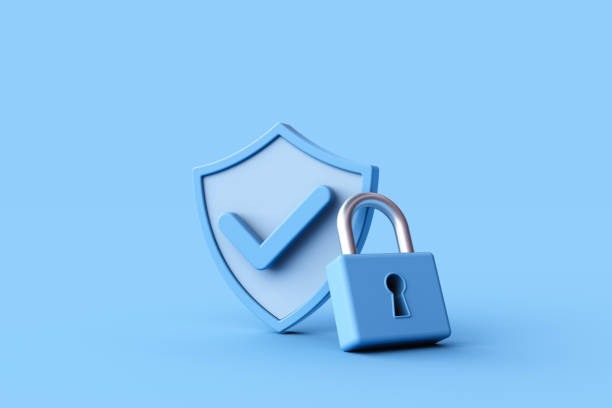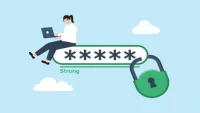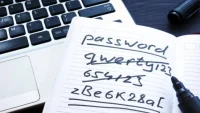In an era where cyber threats are increasingly sophisticated, the necessity of a strong password generator cannot be overstated. These tools not only create complex passwords that are difficult for attackers to crack, but they also streamline the management of multiple accounts, promoting better security practices.
With the alarming rate of data breaches, understanding how these generators function and their inherent benefits becomes essential. However, many users still fall prey to common password pitfalls that could jeopardize their online safety. What implications could these mistakes have on your digital security?
The Importance of Strong Passwords
In the domain of cybersecurity, the password serves as a critical line of defense against unauthorized access to sensitive information. The efficacy of this defense is heavily contingent on the strength of the password employed. A strong password typically includes a combination of uppercase and lowercase letters, numbers, and special characters, making it less susceptible to brute-force attacks or dictionary attacks.
Utilizing a password generator can greatly enhance the complexity of passwords, thus increasing the difficulty for malicious actors to decipher them. Furthermore, the implementation of strong passwords is imperative not only for individual accounts but also for organizational security protocols, as weak passwords can lead to catastrophic data breaches. As a result, adopting robust password practices is essential in safeguarding digital assets.
How Password Generators Work
Password generators frequently utilize algorithms to create complex passwords that enhance security for users. These algorithms typically employ a combination of randomization techniques and character selection parameters, guaranteeing that generated passwords include upper and lower case letters, numbers, and special characters. Some generators implement cryptographic functions, such as hashing, to guarantee the randomness and unpredictability of the output.
Additionally, users can often set parameters regarding password length and complexity, further tailoring the output to meet specific security requirements. The underlying mathematical principles, including entropy calculations, help assess the strength of generated passwords, making them resistant to brute-force attacks. Overall, the effective operation of password generators relies on sophisticated algorithms designed to provide robust security solutions in a digital landscape increasingly threatened by cyberattacks.
Benefits of Using a Password Generator
One significant advantage of utilizing a password generator lies in its ability to produce highly secure, unique passwords tailored to individual needs. These generators employ complex algorithms that create passwords with a mix of characters—uppercase, lowercase, numbers, and symbols—guaranteeing robustness against brute-force attacks. Moreover, the randomness inherent in generator outputs reduces the risk of common password vulnerabilities, such as predictable patterns or dictionary words.
By automating password creation, users mitigate the cognitive load associated with remembering multiple complex passwords, fostering better security practices. Additionally, many password generators can integrate seamlessly with password management systems, facilitating the secure storage and retrieval of these generated passwords. This guarantees both convenience and enhanced security in digital interactions.
Common Password Mistakes to Avoid
Creating secure passwords is crucial for maintaining online security, yet many users still fall prey to common pitfalls that compromise their accounts. One prevalent mistake is using easily guessable information, such as birthdays or names, which attackers can exploit through social engineering. Another error involves reusing passwords across multiple sites, increasing vulnerability if one account is breached.
Additionally, relying on short passwords fails to provide adequate protection; experts recommend a minimum of 12 characters. Users often neglect to enable two-factor authentication, a critical layer of security that greatly reduces the risk of unauthorized access. Finally, failing to update passwords regularly can leave accounts exposed to long-term threats. Awareness of these mistakes is essential for enhancing online security.
Choosing the Right Password Generator
Selecting an appropriate password generator is essential for ensuring robust online security. When evaluating password generators, consider the algorithms employed; reputable generators utilize strong cryptographic methods, such as SHA-256, to create unpredictable and complex passwords. Additionally, assess the generator’s flexibility; it should allow customization of password length and character types, including uppercase, lowercase, numerals, and special symbols, thereby enhancing strength.
Security features are paramount; opt for generators that do not store or transmit your passwords over the internet, minimizing risk of exposure. Moreover, user reviews and independent security audits provide insight into the tool’s reliability. Ultimately, a thorough examination of these factors will aid in selecting a password generator that fortifies your online accounts against unauthorized access.
Conclusion
To summarize, the utilization of a strong password generator is imperative for enhancing online security. By producing complex and unique passwords, these tools mitigate the risk of unauthorized access and potential breaches. The automated creation of passwords guarantees adherence to best practices, reducing the likelihood of common password mistakes. Consequently, adopting a reliable password generator not only fortifies individual account security but also contributes to the broader objective of safeguarding digital assets in an increasingly vulnerable online landscape.

Vivan Henderson, a professional photographer born in Texas. Photography is his passion. He was fond of nature in his childhood. So he took his passion as a profession. He is basically nature photographer but also take other type of photo. He completed graduation in computer science from Texas Tech University. He lives in Houston with his wife and two children’s.





